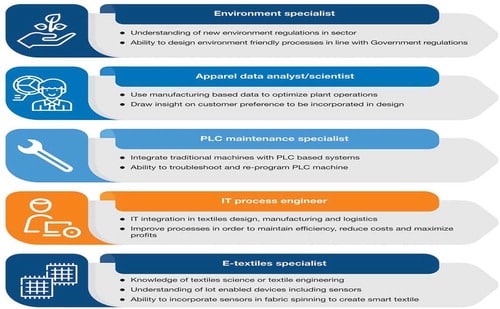Government Skills Policy Fails to Meet Expectations of Small Manufacturers

A recent report by Cushman & Wakefield reveals that a significant number of small manufacturing enterprises in India feel disconnected from government skill-training initiatives. The survey indicates that 71% of these businesses have not benefited from such programs, highlighting a critical gap in support for Micro, Small, and Medium Enterprises (MSMEs). While these enterprises employ a large portion of the workforce and contribute significantly to the manufacturing output, their productivity remains low compared to larger firms.
Survey Findings on Skill Training Initiatives
The Cushman & Wakefield report, titled “Elevating India’s Manufacturing Resilience: Charting the Path to Self-Reliance,” sheds light on the challenges faced by MSMEs in accessing government skill and talent programs. According to the survey, 61% of MSMEs reported receiving no support from these initiatives, with only 39% acknowledging any benefits. This disconnect is particularly pronounced among smaller firms, those with fewer than 500 employees. Despite employing four out of five workers in the manufacturing sector and contributing to 40% of the output, productivity levels in MSMEs are concerning. A worker in an MSME generates only 14% of the output compared to their counterparts in larger enterprises, indicating a pressing need for effective skill development.
Infrastructure Spending and Its Impact
Interestingly, while skill initiatives appear to be lagging, infrastructure investments are making a notable impact on MSMEs. The survey found that 88% of respondents acknowledged that government projects such as Bharatmala, Sagarmala, Dedicated Freight Corridors, and the National Industrial Corridor Development have influenced their capital expenditure plans. Furthermore, 93% of businesses reported improved operating efficiency and profitability in areas where modern industrial parks and corridors are established. Large enterprises also credited infrastructure upgrades as crucial to their growth, emphasizing the importance of robust infrastructure in enhancing productivity and competitiveness.
Challenges Facing MSMEs
Despite the positive effects of infrastructure spending, MSMEs continue to face significant challenges that threaten their long-term competitiveness. High logistics costs, limited warehousing space, and low domestic value addition are major concerns. For instance, India has only 0.2 square feet of warehousing per urban resident, compared to 47.3 square feet in the United States. Additionally, the domestic value addition stands at 17%, significantly lower than China’s 25%. These issues are compounded by a complex regulatory environment, with a typical manufacturing MSME dealing with over 1,450 compliance obligations annually, costing between Rs 13–17 lakh per year. This regulatory burden includes numerous legal categories and imprisonment clauses for procedural lapses.
Call for Policy Reforms
In light of these findings, experts are calling for a more comprehensive and MSME-focused policy approach. Rishi Agrawal, CEO of TeamLease RegTech, emphasized the need to reduce regulatory hurdles that hinder MSME growth. He advocates for integrating compliance into India’s Digital Public Infrastructure (DPI) stack to facilitate smoother operations for these enterprises. The report underscores the necessity of combining skill development with regulatory relief and infrastructure support to empower India’s 6.45 crore MSMEs effectively. Addressing these challenges is crucial for enhancing the productivity and competitiveness of the manufacturing sector in India.
Observer Voice is the one stop site for National, International news, Sports, Editor’s Choice, Art/culture contents, Quotes and much more. We also cover historical contents. Historical contents includes World History, Indian History, and what happened today. The website also covers Entertainment across the India and World.
Follow Us on Twitter, Instagram, Facebook, & LinkedIn

